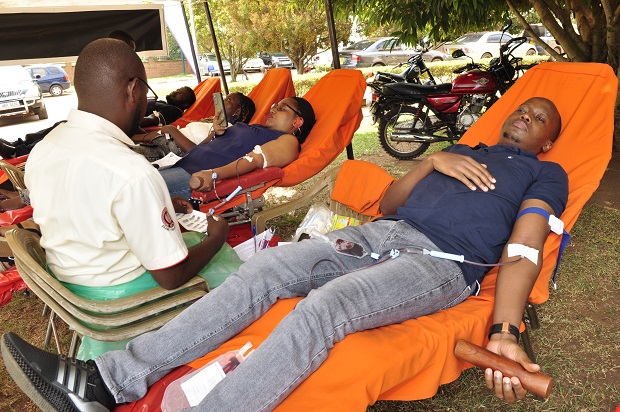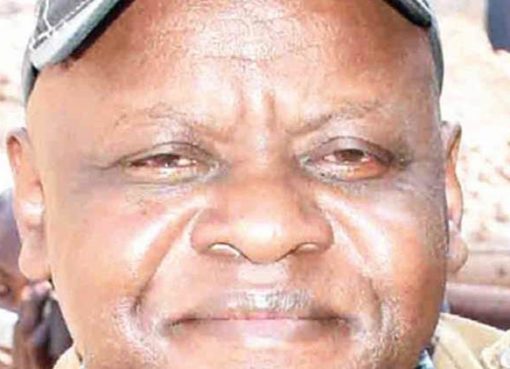Good Samaritans donating blood
According to the 2021 statistics from World Health Organisation’s Global Database on blood safety, a country should be able to collect blood equivalent to 1% of its population.
Uganda has an estimated population of over 45 million but only collects an estimated amount of 300,000 units of blood annually which is far below the required amount.
The shortage of blood comes with serious consequences such as lowering survival rates for patients with severe malaria who require 29% of the blood collected currently, sickle anemia patients who require 17%, cancer patients undergoing treatment who require
15%, accident victims who need 6% and patients who suffer cases like burns and surgical procedures who require 16%.
Cipla Quality Chemical Industries Limited (CiplaQCIL), in partnership with Mengo Rotary Blood Bank, has therefore launched the second phase of Hope in Every Drop campaign, a blood donation drive aimed at addressing blood deficit in Uganda.
“Making viable artificial blood is a very complex process. So, at present, the best way to collect blood is still via people donating it. Only 80,000-90,000 registered donors actually donate. And there’s a crippling blood shortage in Uganda, which can have dire
medical consequences. As part of our ethos of “caring for life”, we’re therefore imploring Ugandans with our “Hope in every drop” campaign to roll up their sleeves and brave a quick prick to help save lives,” said Ajay Pal, Chief Executive Officer of CiplaQCIL.
Based on the current population growth projections, the Uganda Blood Transfusion Services anticipates that the country may require around 510,030 units of blood towards the end of this year. It is estimated that only 300,000 units of blood will be collected, leaving a big deficit.
During the COVID-19 pandemic in 2020, blood collections dropped from 96% to 76%, due to safety restrictions.
Since life has gone “back to normal”, blood collections have increased to 80%. However, this number is still low because, with a population of over 45 million people, Uganda requires at least 450,000 units of blood annually.
Dr Frank Kakuba, head of the Mengo Rotary Blood Bank, said: “There is still a deficit that needs to be addressed urgently. We need blood to save the lives of people suffering from severe malaria, pregnant mothers, anaemic children, and patients undergoing surgery, among others.”
CiplaQCIL launched the “Hope in every drop” campaign earlier this year, to help increase the number of donors and educate people about blood donation. They collected more than 100 units of blood during the first phase.
The campaign aims to collect 1,000 units of blood from the 18 stations.
To find your nearest blood donation centre, visit https://drive.google.com/file/d/1whAWaUvkJnhHLthswfdqVwSfy016Vq2u/view?invite=CIesisYM&ts=62bd5260
- To donate blood, you need to meet the following basic criteria: · You are between the ages of 17 and 75 years old, for first time donors ·
- You weigh a minimum of 50 kgs ·
- You are in good health ·
- You lead a low risk lifestyle
To donate blood or for more info, please call 078 2614 316/ 074 0428 201.





